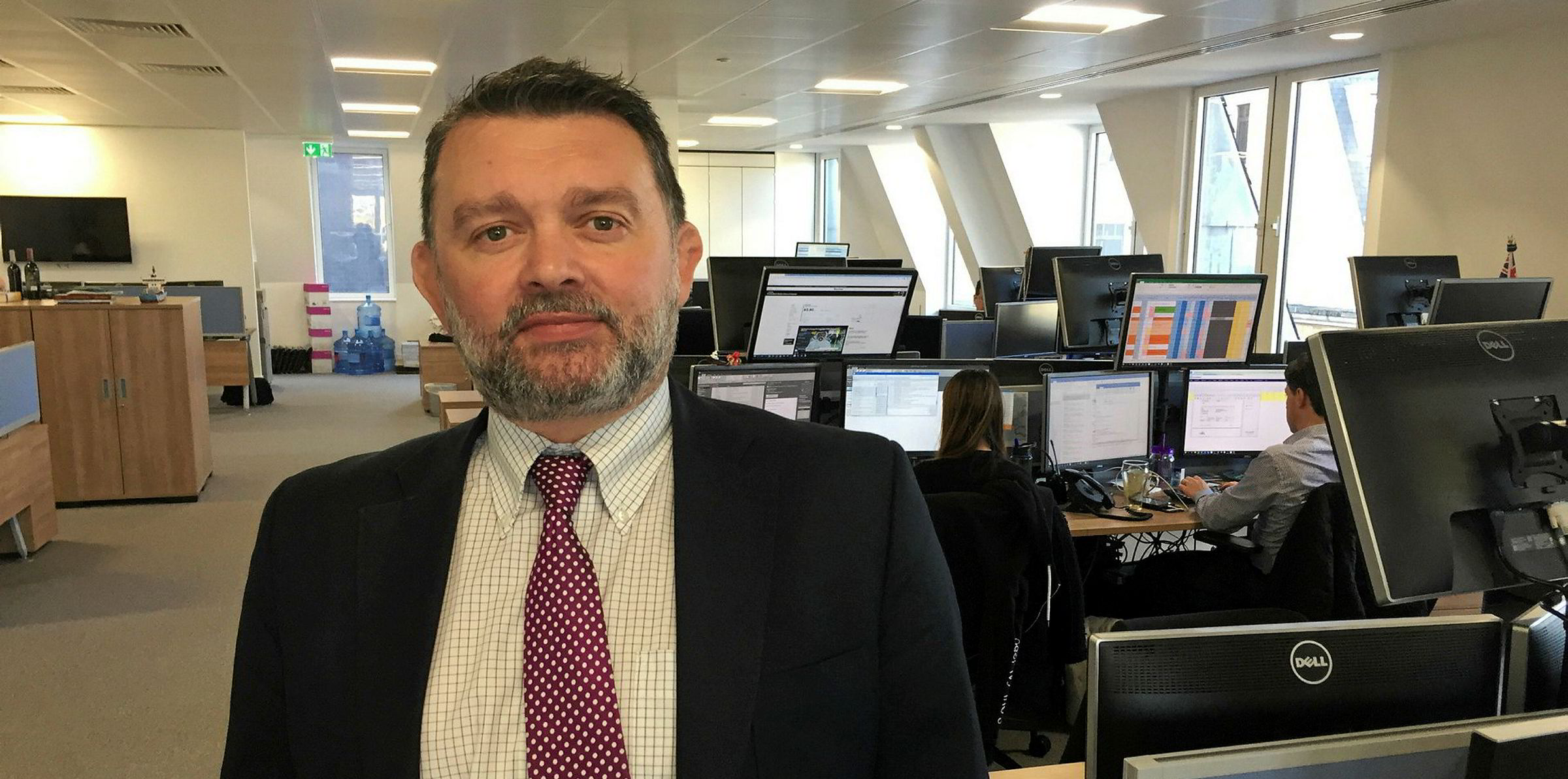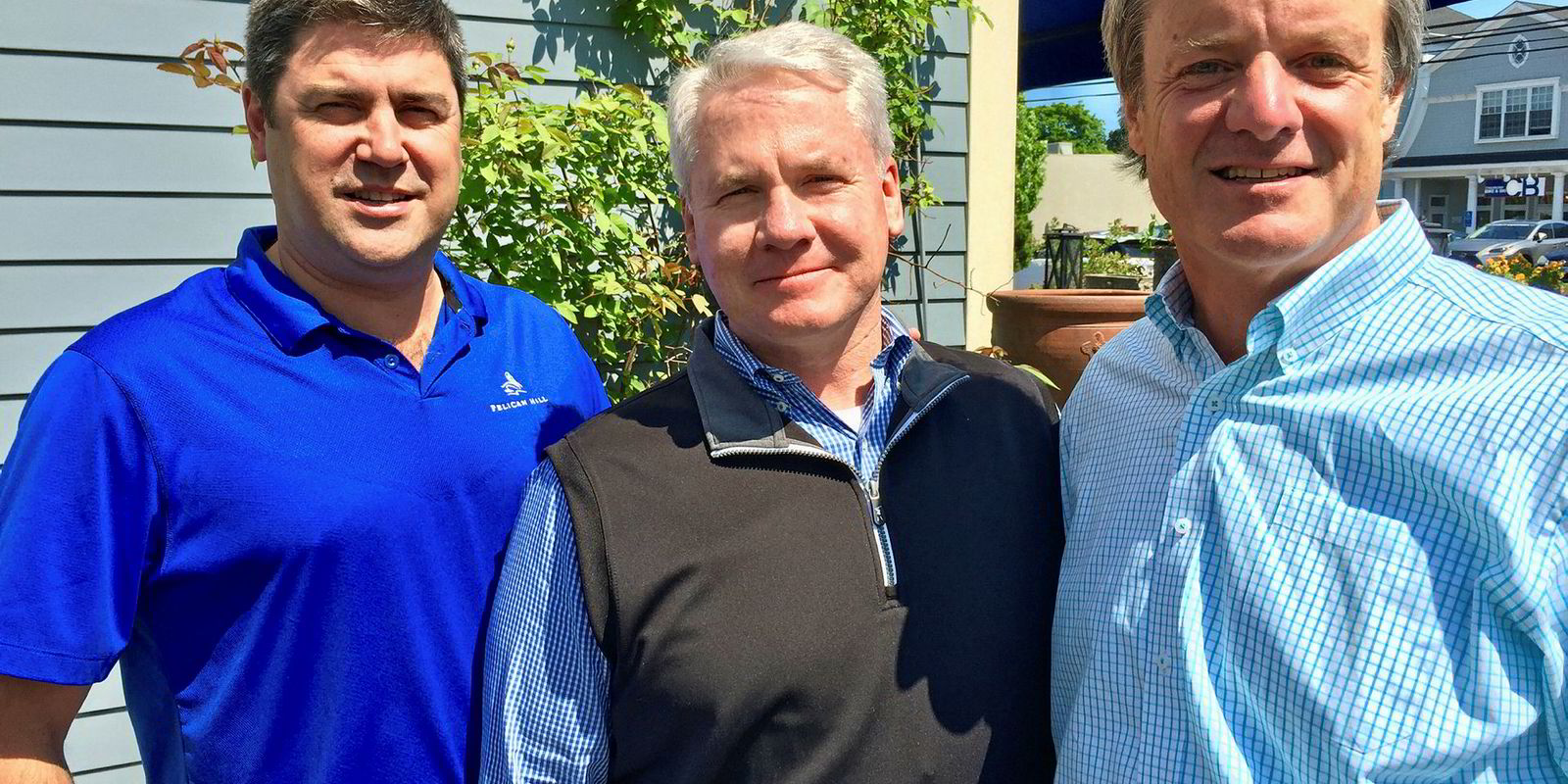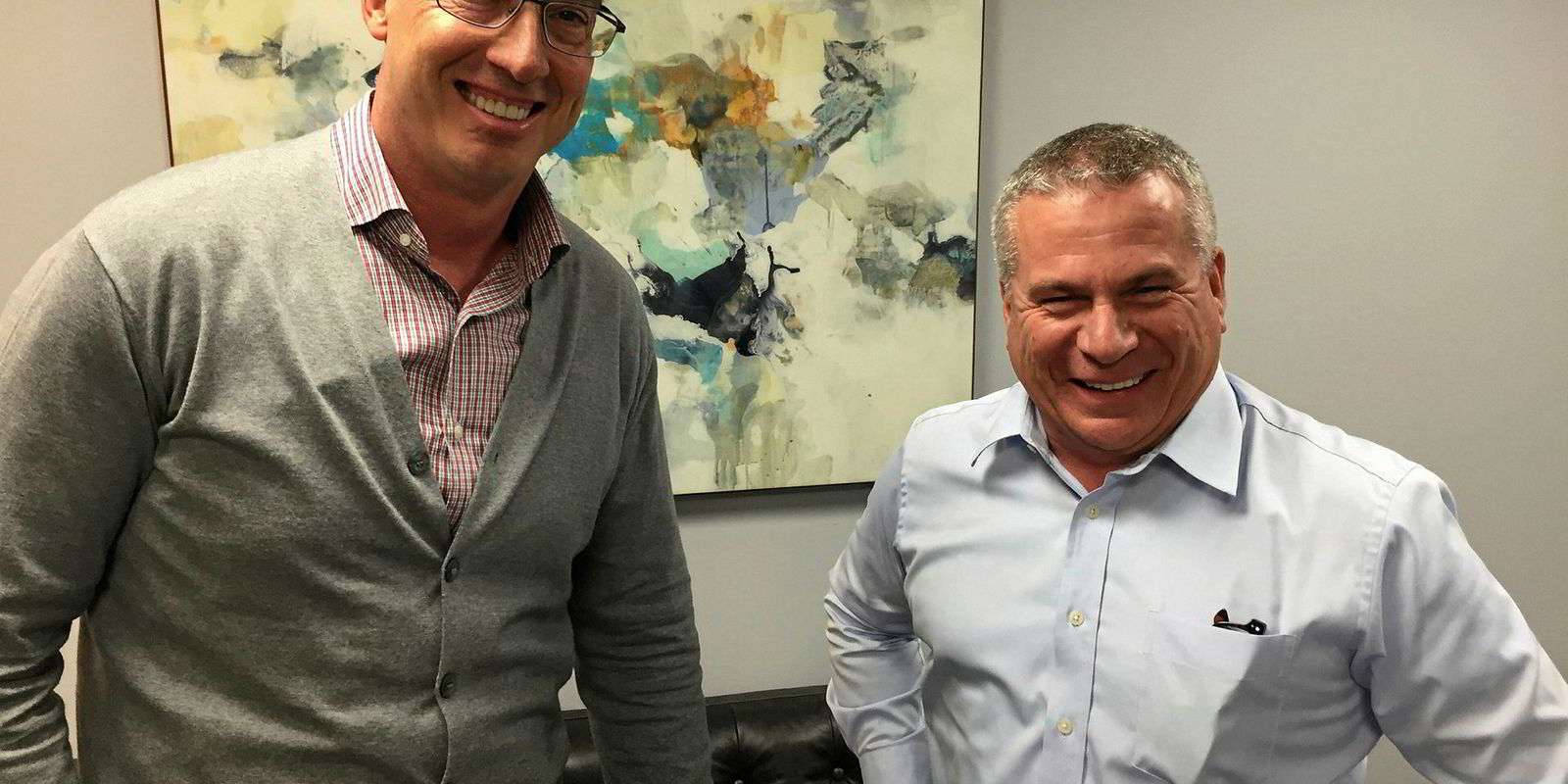It is all about trying something new for Heidmar and chief executive James Pippard.
Hired in November 2017 from Teekay Corp, Pippard is only the second CEO to come from outside the tanker operator's ranks, after the late Marc La Monte.
He is also the first to be based in London. His predecessors ran things from Heidmar's offices in Norwalk, Connecticut.
But that is not where the new wrinkles end.
New ventures
Pippard has introduced ventures in bunkering and freight forward agreements (FFAs) as he seeks to move Heidmar into a new era of pooling and commercial management.
At the same time, he is fighting to stem falling pool numbers, which are down about 20% since his arrival, amid a growing field of competitors that includes start-ups by former Heidmar executives.
Pippard recently welcomed TradeWinds to Heidmar’s London offices to talk about the transition and his vision for the company.
“I think the future of pooling is more flexible, it’s more dynamic,” Pippard says. “I think pooling is about managing risks on behalf of our owners and using our strengths in chartering and FFAs and our bunkering department to absorb that risk and give them what they want in return.”
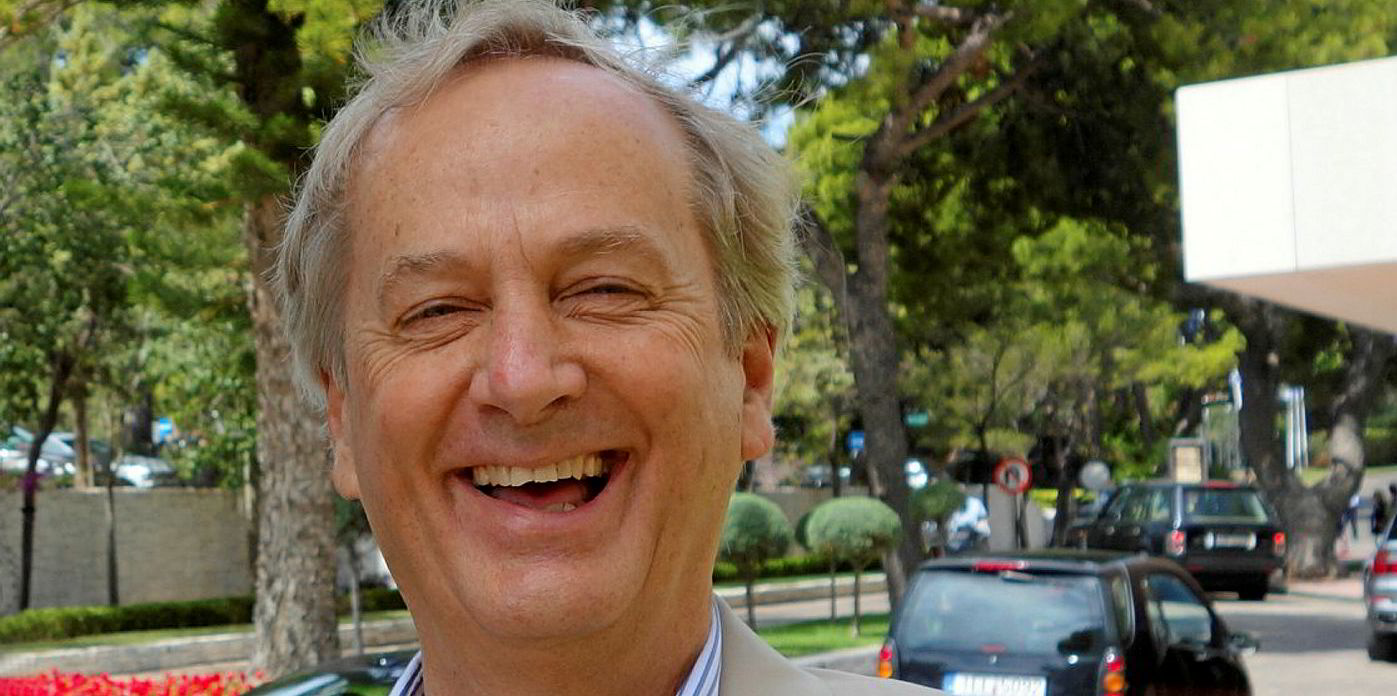
I moved offices on average every three years during my time with Teekay. It gave me the right grounding to understand both pooling and how to see life from a shipowner’s point of view — how they need to manage and what the risks are
Chief executive James Pippard
It is as much a matter of change for Pippard as it is for Heidmar.
He spent 25 years at Teekay, working in a variety of commercial management roles in Vancouver, Houston, Singapore and London.
“I moved offices on average every three years during my time with Teekay,” Pippard says. “It gave me the right grounding to understand both pooling and how to see life from a shipowner’s point of view — how they need to manage and what the risks are.”
The experience also left him familiar with Heidmar.
“Before I joined up, I already knew a lot about them," he says. "I’d spent a lot of years competing with them. I spoke to a lot of people about the Heidmar brand and I knew the quality behind it."
After a year at the helm of the company, Pippard has already made his mark.
In May last year, Heidmar set up new fuels platform Heidmar Bunkering Services (HBS), making his former Teekay colleague Mark Smith a director.
Then in September, he launched a freight futures desk.While Pippard himself is experienced in the field, he brought in specialist Ben Woodbridge, who was the former head trader for GFI/Braemar ACM in London for 12 years.
Both initiatives fit Pippard’s vision for the company’s shipmanagement functions going forward, which involves keeping one eye on the IMO’s 2020 emissions regulations.
Purchasing power
HBS is free for any pool partner and serves others for what Pippard describes as “a small fee”. It seeks to leverage scale of purchasing power and market intelligence to deal with both pricing and quality issues.
New York-listed Ardmore Shipping is an early third-party client.
“I do think bunkering is going to become more important than the freight market over the next 12 to 18 months,” Pippard says. “Having the right strategy and contracts in place for bunkering the ships is going to be crucial. The scale we have allows us to pre-plan that a lot better than if each of us acted alone.
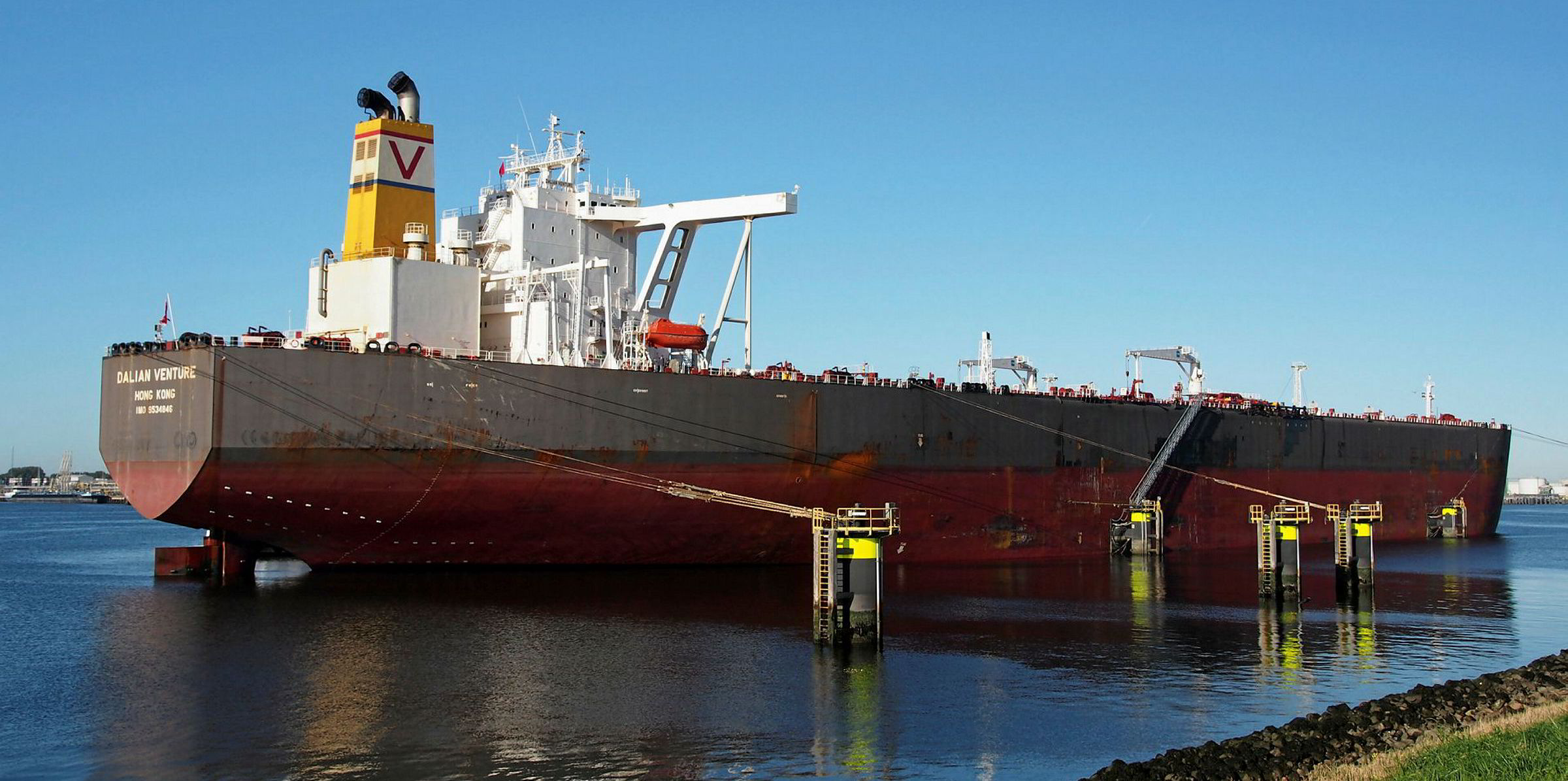
We’re looking at fuel contracts. We’re lab testing 0.5% [sulphur] grades. We’re working with our partners to decide how best we can help them
James Pippard, chief executive of Heidmar
“We’re looking at fuel contracts. We’re lab testing 0.5% [sulphur] grades. We’re working with our partners to decide how best we can help them.”
In comparison, FFAs are old hat for Pippard. This is the fourth desk he has started after launching three at Teekay.
“There’s a huge amount of information that our physical desk has as to how the market is going to move, but to also offer our partners a way to optimise their earnings aside from their physical earnings is important,” Pippard says.
“If the Caribs [Caribbean] market is falling and the UK is going up, you can’t move the ships quickly enough physically to take advantage of it, but you can achieve it through paper. In this environment, people do need hedging cover.”
Pippard sees shorter-term pool commitments as another potential growth area.
“I actually like the idea of more-flexible pools that allow people to come in and out,” he says. “We use the term hotel-pools. Owners can come in for two or three months rather than a year.
"For me, as an ex-owner, flexibility and commitment are two challenges, along with working capital. How much of my liquidity do I need to spend for ships to be commercially managed?”
Retaining commitment
For all those ideas, retaining commitment to the existing pools remains a challenge. Heidmar’s numbers are down about 20% — to roughly 80, from around 100 when Pippard came in.
Its cornerstone Star Tankers panamax pool has virtually disappeared, with only four tankers left.
Meanwhile, two Connecticut-based startup outfits run by former Heidmar chief executives — Tim Brennan’s Penfield Marine in panamaxes and aframaxes and Ben Ognibene’s Concord Maritime in aframaxes — have been building strength and numbers.
They are just two among a batch of competitors.
Some market observers say Heidmar’s 49% ownership by Greece’s DryShips does not help the cause as DryShips principal George Economou does not contribute a single ship to the Heidmar pools.
While praising Heidmar’s relationship with both Economou and the other 49% owner — financial giant Morgan Stanley — Pippard says Heidmar is placing emphasis on its three largest pools, aframaxes, suezmaxes and VLCCs.

“This strategic focus, and the natural ebb and flow of a competitive pooling business, has meant we expected our overall ship count to be dynamic as we reorganised to concentrate our energy [on those three pools],” Pippard says.
“We believe this focus will be to our partners’ benefit both in terms of our core pooling business performance, and also in allowing us to develop other services to our partners as the pooling business naturally becomes more sophisticated.”
